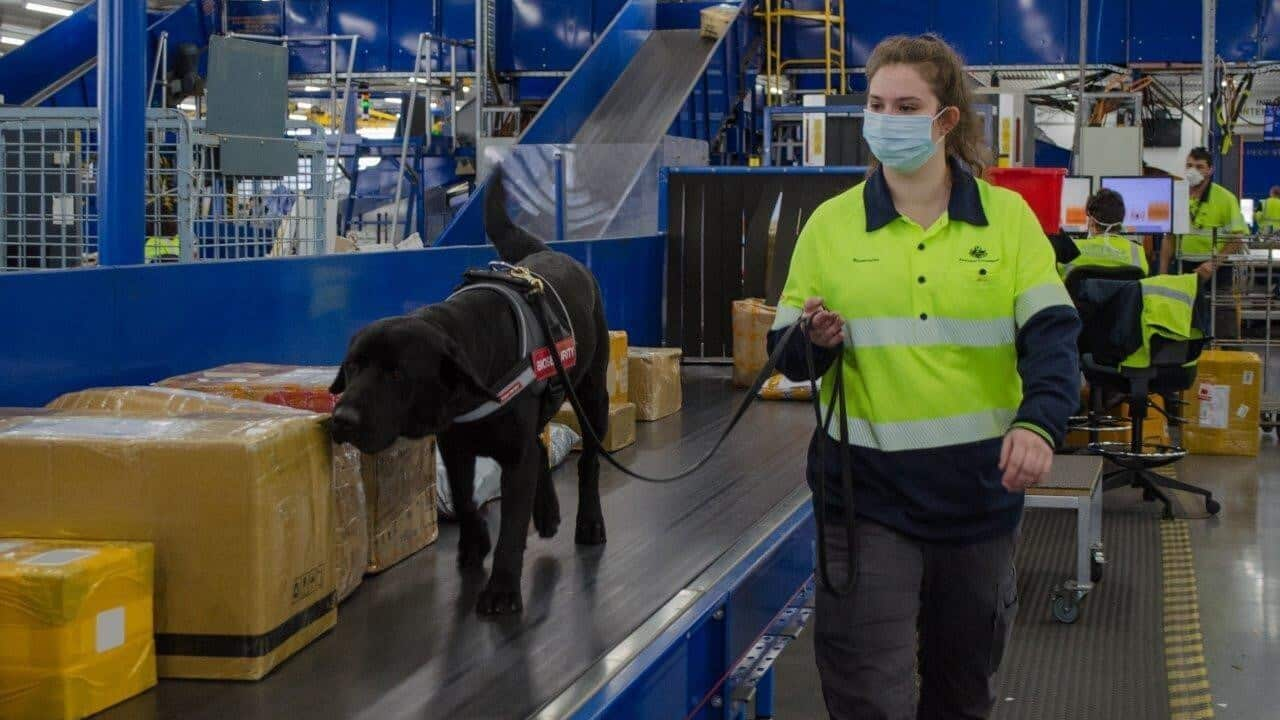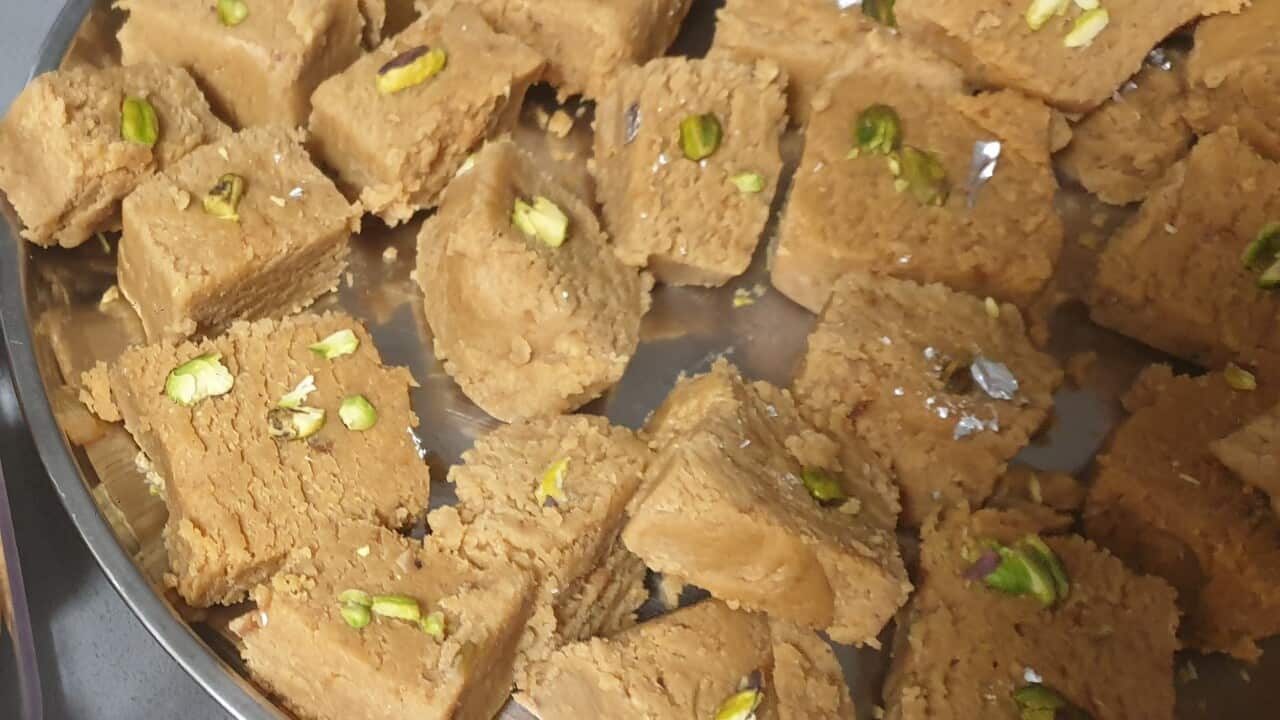Highlights
- The parcel must correctly list the contents
- Indian sweets, dairy products, dried fruit and nuts not allowed
- Banned items may be destroyed at the border or need treatment at the receiver’s expense
The Department of Agriculture, Water and the Environment wants members of the Indian community expecting special Diwali-related gifts which many times includes sweets to ensure their relatives are aware of Australia’s strict biosecurity laws.
“Tell your friends and family overseas not to send you gifts containing biosecurity risk items, such as Indian sweets (mithai) like barfi, ras malai and pedas, products containing dairy, fresh and dried fruit, nuts, seeds, herbs, spices, tea, products containing meat ingredients, plants, flowers and plant material,” the spokesperson of the Department told SBS Hindi.
“If you are expecting to receive Diwali gifts through the mail, make sure your family and friends correctly list the contents of all mail articles and fill out any postal declaration labels or forms,” the spokesperson said. All parcels arriving in Australia are assessed by the Department of Agriculture, Water and the Environment biosecurity officers using X–rays, detector dogs and manual inspection.
All parcels arriving in Australia are assessed by the Department of Agriculture, Water and the Environment biosecurity officers using X–rays, detector dogs and manual inspection.

Tell your friends and family overseas not to send you gifts containing biosecurity risk items, such as Indian sweets (mithai) like barfi, ras malai and pedas. Source: Getty Images
Any packages or luggage containing biosecurity risk goods are opened and inspected by these biosecurity officers.
Items that pose an unacceptable biosecurity risk will be destroyed at the border, the Department warns.
“Biosecurity risk items sent via mail that do not meet import conditions are either exported back to the sender or destroyed, to ensure they do not harm Australia’s agriculture or environment,” the spokesperson said.
If the parcel is found to breach Australia’s biosecurity condition, it could also lead to criminal prosecution.
“In relation to penalties for mail recipients, if you are found to breach Australia’s biosecurity conditions, you can be subject to an investigation and possible criminal prosecution,” the department spokesperson warned.
The other alternative is to pay for the treatment of the goods.
“If your goods require treatment, you will be given the option to pay for the treatment. It may take several weeks. Whilst each good is assessed on an individual basis, plants, flowers and plant material are likely to require treatment at the recipient’s expense ($75 per item),” the spokesperson said.
The Department though clarified that alternative gift ideas such as fabric, gold or silver beads and coins, personalised photo items and artificial flowers do not pose a biosecurity risk.
Diwali gifts that can present a biosecurity risk
- sweets such as burfi, ras malai, rasgulla and pedas
- products containing dairy
- fresh fruit and dried fruit
- raw nuts, seeds and herbs
- flowers and plant material
Diwali gifts that are permitted into Australia
- artificial flowers
- fabric, gold or silver beads and coins
- personalised photo items
to SBS Hindi daily news updates for free. Get news, articles and podcasts delivered straight to your Facebook messenger. Send the word “News” to our now.



